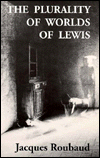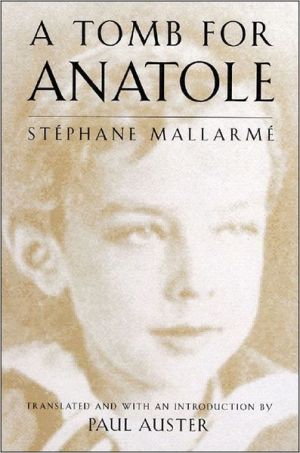Plurality of Worlds of Lewis
This collection of prose and poetry elaborates on themes explored in Roubaud's "Some Thing Black", which the Times Literary Supplement called "a harrowing book . . . an elegy for our time." As in the earlier collection, Roubaud grapples with the grief he continues to feel at the untimely death of his young wife. In parts 1 and 2, he uses the possible existence of many worlds as a means by which to transcend the trauma of this unbearable loss. (David Lewis's book "On the Plurality of Worlds"...
Search in google:
This collection of prose and poetry elaborates on themes explored in Roubaud's "Some Thing Black", which the Times Literary Supplement called "a harrowing book . . . an elegy for our time." As in the earlier collection, Roubaud grapples with the grief he continues to feel at the untimely death of his young wife. In parts 1 and 2, he uses the possible existence of many worlds as a means by which to transcend the trauma of this unbearable loss. (David Lewis's book "On the Plurality of Worlds" provided the inspiration and title for Roubaud's book.) These poems also rage against the limitations of poetry itself, which can only clarify the exactness of his grief, not assuage it. In part 3, Roubaud uses a mathematically precise form to explore the idea of form. As a meditation on both grief and on poetry, The Plurality of Worlds of Lewis is a memorable achievement. "Writing as a poet-philosopher, Roubaud . . . casts a delicate net of language to apprehend ideas that most compel him. . . . The poems . . . are filled with play of light and shadows, and define loss as if metered by questions, suppositions and impossibilities. . . . Precisely measured and deeply moving, Roubaud's meditations are rendered in Waldrop's translation with force and nuance." (Publishers Weekly 2-27-95) "Ghostly presences inhabit these spaces that these lyric poems and fluid fictions construct. Rosmarie Waldrop's translation brings to the surface the obsessive, repetitive thought patterns that characterize grief. . . . Roubaud . . . asks language to propose equivalencies and transformations." (Susan Smith Nash, Texture #6) "Highly recommended." (American Poet Spring 96)Publishers WeeklyWriting as a poet-philosopher, Roubaud, who teaches mathematics at University of Paris, casts a delicate net of language to apprehend ideas that most compel him. Here, as in Some Thing Black, he struggles with the premature death of his wife. Attempting to relate in some metaphysical equation the dead with the living, Roubaud posits that there are many, simultaneous worlds (the rather awkward title is based on philosopher David Lewis's book, On the Plurality of Worlds). He tries to place his wife's nothingness within his realm of experience, exploring his own intimate, contradictory states of consciousness-pain, memory, daily routine-and the branching realities they suggest. The poems of the first two selections are filled with play of light and shadows, and define loss as if metered by questions, suppositions and impossibilities. The third section is a long prose poem in which he considers the idea of form as it exists in his own body, in the ``grey-in-itself'' void of all objects, and in the signficance of an empty notebook. Precisely measured and deeply moving, Roubaud's meditations are rendered in Waldrop's translation with force and nuance. (Mar.)
\ Publishers Weekly - Publisher's Weekly\ Writing as a poet-philosopher, Roubaud, who teaches mathematics at University of Paris, casts a delicate net of language to apprehend ideas that most compel him. Here, as in Some Thing Black, he struggles with the premature death of his wife. Attempting to relate in some metaphysical equation the dead with the living, Roubaud posits that there are many, simultaneous worlds (the rather awkward title is based on philosopher David Lewis's book, On the Plurality of Worlds). He tries to place his wife's nothingness within his realm of experience, exploring his own intimate, contradictory states of consciousness-pain, memory, daily routine-and the branching realities they suggest. The poems of the first two selections are filled with play of light and shadows, and define loss as if metered by questions, suppositions and impossibilities. The third section is a long prose poem in which he considers the idea of form as it exists in his own body, in the ``grey-in-itself'' void of all objects, and in the signficance of an empty notebook. Precisely measured and deeply moving, Roubaud's meditations are rendered in Waldrop's translation with force and nuance. (Mar.)\ \

